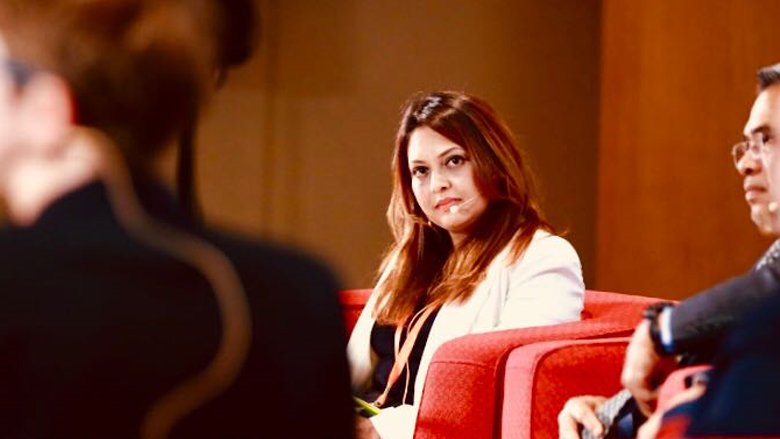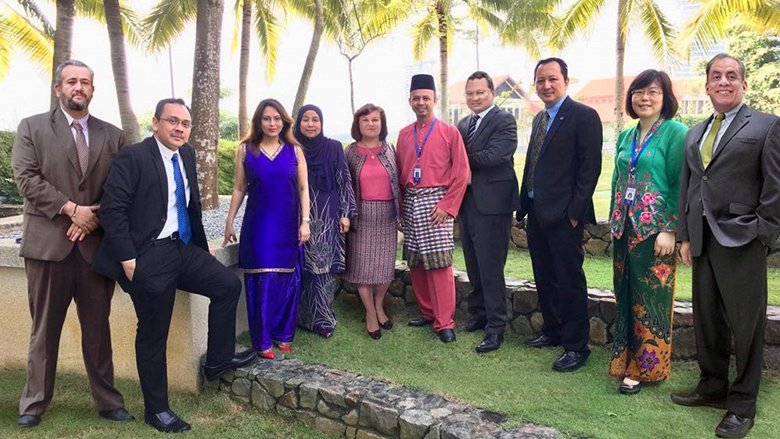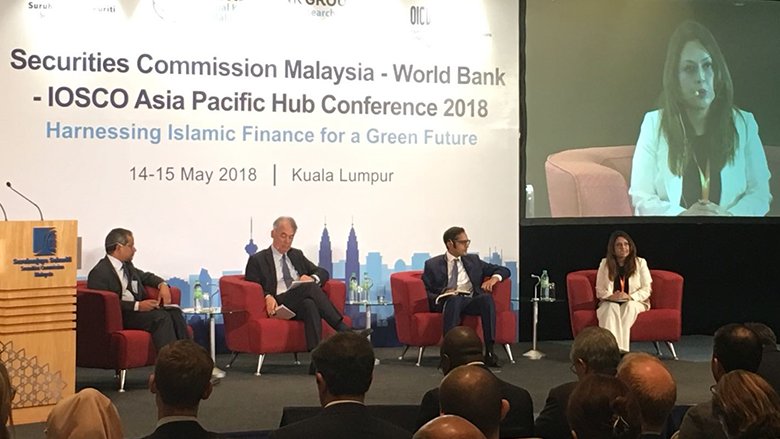As the World Bank Group re-defines ways to make its work more impactful in the midst of global challenges, the focus is very much on driving development in a sustainable way. The key to that is bringing private capital into emerging markets by focusing on impact. Farah Imrana Hussain, Head of Treasury's Sustainable Finance and ESG Advisory Services, and her colleagues have played a key role in World Bank engagements that led to a huge shift in the way emerging market governments raise capital from the private sector for environmental and social priorities.
What is sustainable finance?
In simple terms sustainable finance refers to the various financial instruments that are dedicated to mobilizing financing for activities that have positive impacts on the environment and society. But more broadly, it incorporates the roles, responsibilities, and activities of the overall financial system as it seeks to mobilize financing and minimize risks. So sustainable finance also includes good governance, policies and regulations that create the enabling system in which resources are driven towards environmental and social priorities.
How can green and blue bonds help drive development in a sustainable way?
Green bonds are capital market instruments that are dedicated to funding projects and activities that have positive environmental and social impact. Blue bonds, a subset of green bonds, support projects that contribute to the protection of oceans or improved water management. These financial instruments allow borrowers to access lenders interested in using their money to achieve positive impact and at the same time motivate the transformation of businesses, economies and governments towards greater sustainability and a better future for all.
The Government of India’s debut in the green bond market in 2023 is considered a milestone not just for South Asia, but for all emerging markets. I understand that it was facilitated by technical assistance from Treasury’s Sustainable Finance and ESG Advisory Service Program. Can you tell us more about this program?
For a very long time, Treasury has been working with financial market participants to help them understand the value of achieving positive impact, the issues that impact sustainable development, and the types of projects that can make a difference. The World Bank issued the first labeled green bond in 2008. The processes that were used to issue that first green bond served as a blueprint for what is now known as the sustainable bond market. That market has grown to $4.7 tn in 2023 and offers huge opportunities to emerging markets. World Bank member countries are looking for our help to mobilize private sector capital. Treasury's sustainable finance and ESG advisory services were born out of the need to share our insights with our clients. We work closely with global practices and Climate Change colleagues to deliver technical assistance to our clients, with each team bringing its own specialized knowledge. Our involvement makes transactions much more credible to investors. It was an honor to help the Indian government establish its sovereign green bond program.
Can you give some examples of how the World Bank Treasury helps mobilize private capital through advisory services?
When we worked with the Securities Commission of Malaysia to introduce the green sukuk to the market and with the central bank of Fiji to help them issue the first sovereign green bond, there was a big change in the way emerging markets mobilized private capital for environmental priorities. Emerging markets are not just trend followers. They are leading innovation. And we play an important role in matching demand with supply. You mentioned our work with India. India raised more than $2bn equivalent from the capital markets for environmentally sustainable projects in 2023. This will have a huge impact, not only contributing to its National Determined Contributions, but also encouraging other countries to raise private capital for environmental priorities. With technical assistance from the World Bank, Egypt became the first country in the Middle East and North Africa to issue a sovereign green bond. We worked with IDB to help the government of Brazil issue a $2bn sovereign sustainability bond and with Romania to develop their sovereign green bond framework. At the sub-sovereign level, in 2023 we provided technical assistance to help BIDV, the Joint Stock Commercial Bank for Investment and Development of Vietnam, issue its inaugural green bond. This was the first unguaranteed green bond issued by a Vietnamese commercial bank and is already encouraging others in the country to explore sustainable financing options. Our member countries are interested in financing climate actions, biodiversity protection and Sustainable Development Goals and keen for investors to know the opportunities available in emerging markets. We are working with them to get the right message across to investors and meet market expectations. At the same time, we are working with financial regulators to help them develop enabling regulations, guidelines, and green taxonomies that will scale up the mobilization of private capital.
What are you working on right now?
We are helping a number of emerging market sovereign and sub-sovereign issuers identify sustainable financing options, looking at innovative results-based financing opportunities to incentivize them to deliver better environmental and social results, and exploring blended finance options to reduce cost and attract private capital to emerging markets.
You are the proud mother of a high schooler. How does it affect your opinion on the future of our planet and your role in it?
I learned about the power of money after working in investment banks in London for many years. Being a mother, I am determined to do my part to ensure it is used for good. My daughter and her generation are more willing than previous generations to challenge the system. They really motivate me to make sure we leave the world a better place than we found it. That’s why after working in finance for 15 years I went back to school to get a degree in environmental science. I am now better equipped to do my part for the future of our planet. It is a such a privilege to work for the World Bank because it gives me the platform and the opportunity to do so.
How do you walk the talk of sustainability in your personal life?
I keep my heating and cooling in the eco settings at home, eat mostly plant-based meals, and am fanatical about reusing anything that has any life left in it. I also believe in the importance of hearing the voices of those who are unwilling or unable to live sustainably. We will not succeed if we don’t bring them with us.



